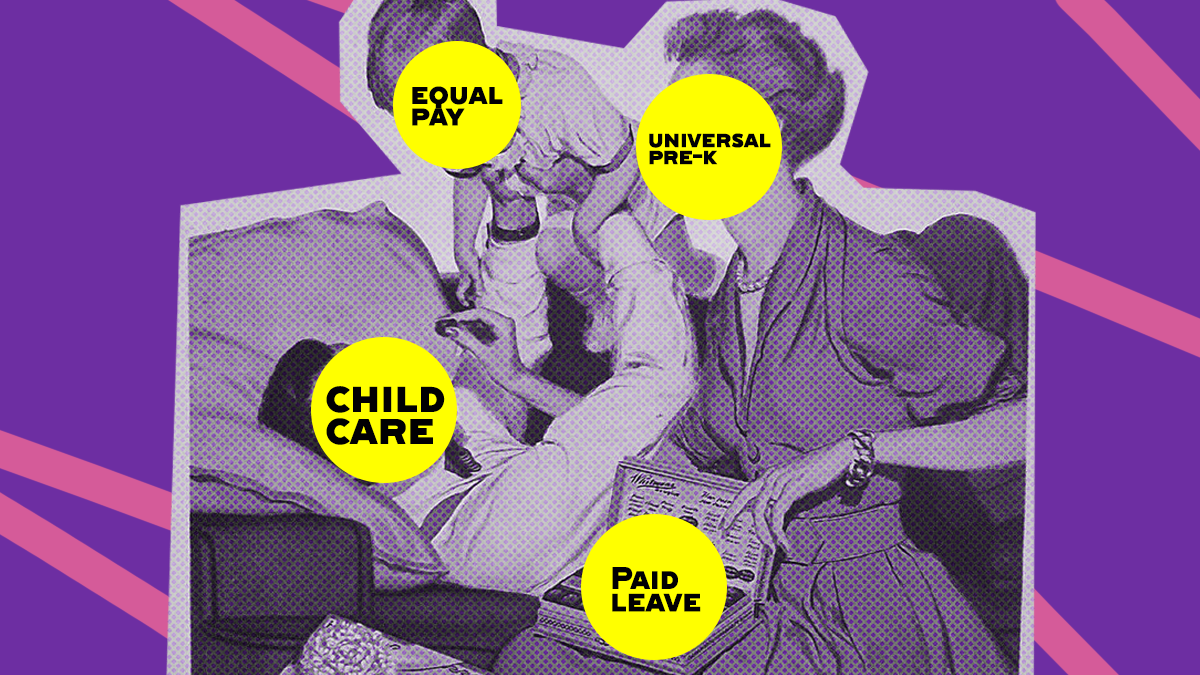40 Years after the Pregnancy Discrimination Act, An Opportunity for Congress to Get Its Common Sense Back

 Bipartisan support for strong women’s rights policy is possible. Not one day…Today. It may be Halloween (and the 40th anniversary of the Pregnancy Discrimination Act), but this isn’t a trick. And it isn’t even really a treat. When it comes to reasonable accommodations for pregnant workers, it’s just common sense. Because who doesn’t support healthy pregnancies and ensuring families can make ends meet as their financial obligations are about to grow with a new baby?
Bipartisan support for strong women’s rights policy is possible. Not one day…Today. It may be Halloween (and the 40th anniversary of the Pregnancy Discrimination Act), but this isn’t a trick. And it isn’t even really a treat. When it comes to reasonable accommodations for pregnant workers, it’s just common sense. Because who doesn’t support healthy pregnancies and ensuring families can make ends meet as their financial obligations are about to grow with a new baby?
But don’t take it from me. Take it from legislators in South Carolina, Nebraska, West Virginia, and Utah…and 19 other states that have enacted laws explicitly granting pregnant workers the right to accommodations at work so they don’t have to choose between a healthy pregnancy and their job.
More and more states are passing pregnancy accommodations laws with bipartisan support because it’s commonsense, good policy
At a time when bipartisanship is as rare as unicorns, especially in Congress, conservative and progressive legislators have been coming together in red and blue and purple states alike to ensure that a pregnant worker with a medical need for accommodation is not pushed out of work when she can be reasonably accommodated without imposing an undue hardship on the employer. Although the Pregnancy Discrimination Act has provided protections against pregnancy discrimination for 40 years, courts have muddied the law’s standard as to a pregnant worker’s right to workplace accommodations. Many pregnant workers continue to be refused accommodations, retaliated against or fired, or pushed onto unpaid leave instead of accommodated, which puts their health and economic security at risk.
Eighteen of the state pregnancy accommodation laws that have been enacted to address these inadequacies have passed since 2013, all with bipartisan support, and in the majority of cases, with unanimous or near unanimous support, because so many state legislators see this as commonsense legislation that benefits everyone.
South Carolina gets it
South Carolina was the most recent state to enact this important legislation this year, passing it through a conservative legislature with strong bipartisan support and a final signature from a Republican governor. The lead sponsors of the bill were a pro-choice Democrat and an anti-choice Republican. And the stakeholders that came to the table in support of the bill ranged from the South Carolina Women’s Rights and Empowerment Network, to the March of Dimes, to the Palmetto Family Alliance, a conservative advocacy group. The key to pulling together the bipartisan legislators and stakeholders was ensuring everyone understood the shared value of keeping pregnant workers and infants healthy and economically secure. As the Palmetto Family Alliance said: “sometimes there are opportunities that come along for common ground on issues that aren’t about left and right but about right and wrong.”
And South Carolina businesses get it
Since the law’s passage, South Carolina business voices have also heralded the legislation as a “development that all workers and managers can cheer” because it provides clarity about workers’ rights and managers’ responsibilities and “important guidance that should result in a reduction in the incidence of discrimination against pregnant workers in the state.” As one South Carolina HR, payroll, and compliance company explained: “effective accommodations and fair treatment is the way employers show compassion and enthusiasm for their employee.”
Why doesn’t Congress get it?
The growing chorus of conservative and progressive states that have enthusiastically enacted bipartisan pregnancy accommodation legislation sends a strong message to Congress that this is commonsense legislation that their constituents want. And yet, the federal Pregnant Worker Fairness Act, which would ensure pregnant workers have the right to reasonable accommodations no matter where they live, has been pending in Congress for six years. In this time of deep political divide, it appears that common sense has gone by the wayside in Congress. Passing the Pregnant Worker Fairness Act is their opportunity to get it back.





